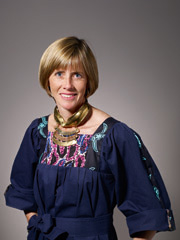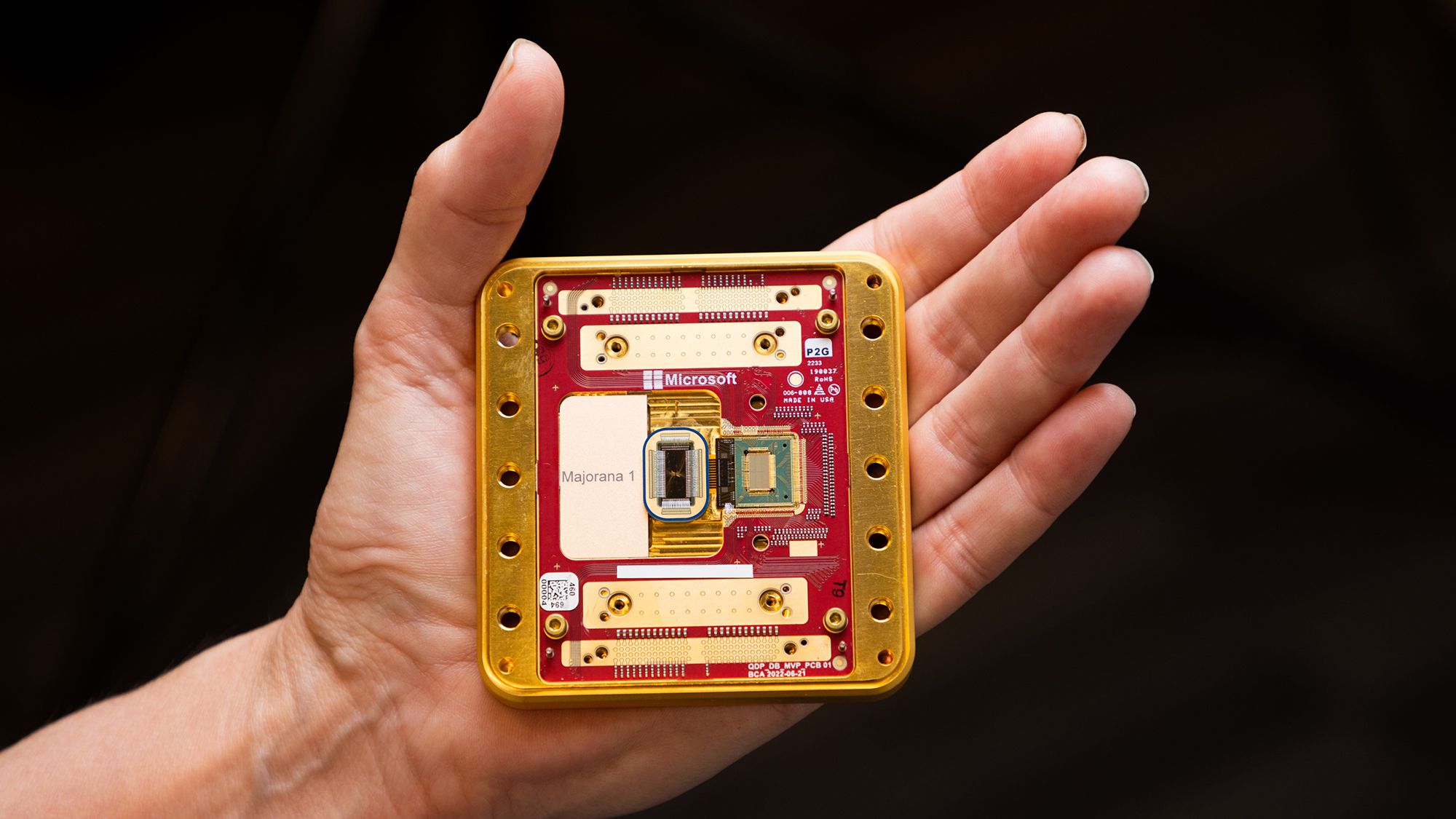Women's pay: Microsoft boss Nadella wasn't all wrong
Microsoft CEO was right to apologise for his comments but research shows it pays women to stick at their jobs

A free daily email with the biggest news stories of the day – and the best features from TheWeek.com
You are now subscribed
Your newsletter sign-up was successful
Microsoft CEO Satya Nadella has caused outrage by suggesting that women who believe they are not being paid fairly should not ask for a pay rise, but should have “faith in the system” and rely on “good karma”.
It came up when Nadella was asked by Harvey Mudd College President Maria Klawe what his advice was for women who are not comfortable asking for a pay rise or a promotion. He responded:
“It’s not about asking for the raise, but knowing and having faith that the system will actually give you the right raises as you go along…
The Week
Escape your echo chamber. Get the facts behind the news, plus analysis from multiple perspectives.

Sign up for The Week's Free Newsletters
From our morning news briefing to a weekly Good News Newsletter, get the best of The Week delivered directly to your inbox.
From our morning news briefing to a weekly Good News Newsletter, get the best of The Week delivered directly to your inbox.
“And that, I think might be one of the additional superpowers that quite frankly women who don’t ask for a raise have. Because that’s good karma. It’ll come back because somebody’s going to know ‘that’s the kind of person that I want to trust. That’s the kind of person I want to really give more responsibility to.’
“And in the long term, efficiency, things catch up. And I wonder… I wonder whether taking the long-term [view] helps solve… what might be perceived as this uncomfortable thing of ‘Hey, am I getting paid right? Am I getting rewarded right?’
“Because [the] reality is your best work is not followed with your best rewards. Your best work then has impact, people recognise it and then you get the rewards…”
The social media universe blew up like Betelgeuse going supernova. As Brooke Masters wrote in the Financial Times: “Mr Nadella’s off-the-cuff advice seemed to confirm the sneaking suspicion that many women have about their companies - that they reward men for being forceful but penalise the same behaviour in women as ‘pushy’.”
A free daily email with the biggest news stories of the day – and the best features from TheWeek.com
Nadella’s retraction was swift and contrite. "I answered that question completely wrong. Without a doubt I wholeheartedly support programs at Microsoft and in the industry that bring more women into technology and close the pay gap.
“I believe men and women should get equal pay for equal work. And when it comes to career advice on getting a raise when you think it’s deserved, Maria’s advice was the right advice. If you think you deserve a raise, you should just ask."
In fact, research shows women DO ask – but, as a strategy, it doesn’t work. What does work is sticking at your job.
I recently met the guru on gender pay differences, Allyson Zimmermann of Catalyst. Catalyst's research on high-flyers (MBA graduates from the world's top business schools) shows that when women ask for a rise, or change jobs to advance their careers, they don’t gain financial ground. Women who changed jobs two or more times post-MBA earned $53,472 less than women who rose through the ranks at their first job.
Why is this? “Our research shows that men are promoted based on potential… whereas women are often promoted based on proven performance,” said Zimmermann.
Because of this, Catalyst found, women actually tend to make more money by staying with the same employer than by switching jobs, while the opposite is true for men. Women who spend their careers at one company build relationships and credibility over time, Zimmermann said.
So Nadella isn’t all wrong. Women who do good work do receive a higher pay package and more responsibility. However, what is true when you’re seven years old (put your head down and work hard and you’ll do well) isn’t true when you’re 27.
Nadella says “your best work has impact”. This is true - but women only advance after doing their best work if they make sure everyone knows who did the work.
Catalyst’s study showed that when women were proactive in making their achievements known, they advanced further, made more money and had higher job satisfaction. Interestingly, this isn’t true for men. Strategies that worked for men include working long hours and looking elsewhere for jobs.
But it does pay for women to stick around. Véronique Laury, Kingfisher’s new CEO, has been with the company since 2003. And even the most old school of old boys’ clubs can be cracked, as Mary Barra, General Motors’ CEO showed this year. It only took 33 years at GM for her to do so.
-
 Political cartoons for February 15
Political cartoons for February 15Cartoons Sunday's political cartoons include political ventriloquism, Europe in the middle, and more
-
 The broken water companies failing England and Wales
The broken water companies failing England and WalesExplainer With rising bills, deteriorating river health and a lack of investment, regulators face an uphill battle to stabilise the industry
-
 A thrilling foodie city in northern Japan
A thrilling foodie city in northern JapanThe Week Recommends The food scene here is ‘unspoilt’ and ‘fun’
-
 Why 2025 was a pivotal year for AI
Why 2025 was a pivotal year for AITalking Point The ‘hype’ and ‘hopes’ around artificial intelligence are ‘like nothing the world has seen before’
-
 Microsoft pursues digital intelligence ‘aligned to human values’ in shift from OpenAI
Microsoft pursues digital intelligence ‘aligned to human values’ in shift from OpenAIUNDER THE RADAR The iconic tech giant is jumping into the AI game with a bold new initiative designed to place people first in the search for digital intelligence
-
 How the online world relies on AWS cloud servers
How the online world relies on AWS cloud serversThe Explainer Chaos caused by Monday’s online outage shows that ‘when AWS sneezes, half the internet catches the flu’
-
 Microsoft unveils quantum computing breakthrough
Microsoft unveils quantum computing breakthroughSpeed Read Researchers say this advance could lead to faster and more powerful computers
-
 Microsoft's Three Mile Island deal: How Big Tech is snatching up nuclear power
Microsoft's Three Mile Island deal: How Big Tech is snatching up nuclear powerIn the Spotlight The company paid for access to all the power made by the previously defunct nuclear plant
-
 Video games to play this fall, from 'Call of Duty: Black Ops 6' to 'Assassin's Creed Shadows'
Video games to play this fall, from 'Call of Duty: Black Ops 6' to 'Assassin's Creed Shadows'The Week Recommends 'Assassin's Creed' goes to feudal Japan, and a remaster of horror classic 'Silent Hill 2' drops
-
 CrowdStrike: the IT update that wrought global chaos
CrowdStrike: the IT update that wrought global chaosTalking Point 'Catastrophic' consequences of software outages made apparent by last week's events
-
 Why is Microsoft breaking up Teams and Office?
Why is Microsoft breaking up Teams and Office?Today's Big Question The company had previously divided the software in Europe, but will now make this change globally